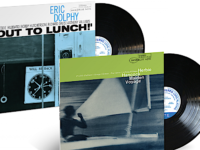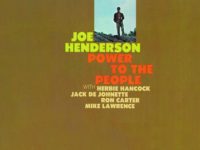Most of this go around of Quickies is about catching up on some of the more recent big name releases. Spending so much time off the main highway of current music, I sometimes need to get back on it to regain a sense of where the mainstream is to begin with. Well, “mainstream” from the perspective of the middle-aged, anyway. And as I am often reminded, the mainstream still has interesting and worthwhile music to offer. Just not quite as often, that’s all.
One of those “big name” CD’s I gave a spin is the new offering by Lenny Kravitz, It Is Time for A Love Revolution. But aside from the “The Immigrant Song” soundalike “Love Love Love” this record just didn’t grab me, so, I’m not going to write about it. Oops, too late! Oh well, here’s the rest in greater detail. But before getting on that main thoroughfare of popular sounds, our journey starts on a dusty road in west Africa:
Akoya Afrobeat P.D.P.
Some large ensembles pay lip service of being multi-cultural and international but Akoya lives up to the billing more than any other acts I’ve come across lately. This 13-piece ensemble is comprised of members hailing from Panama, Ghana, Benin, South Africa, Japan and the USA. The lead singer Kaleta is a veteran of Afro-beat legend Fela Kuti’s Egypt 80 band. This group sports a five piece horn section, four percussionists, two backing vocalists and four guitarists. One of those guitarists just happens to be Ryan Blotnick, an up and coming jazzer from Maine who Mark Saleski profiled recently.
So, with all these influences in the band, the product is predictably of a worldly nature, but it’s predominantly African blended in with American seventies-style funk and a hint of fusion. Kind of like what you might get if you were to blend Kuti with James Brown, Bob Marley and occasionally, some Soft Machine. The jams are all extended, ten-plus minute pieces that hold it together for so long with deep grooves, multilingual shouts by Kaleta and the occasional jazzy solo by the keyboardists or a guest sax player.
This makes for a great party record that doesn’t require a party to enjoy. P.D.P. hits the street on March 1.
Joe Jackson Rain
At least in the beginning, Jackson’s music career took the same path as Elvis Costello’s: an angry young new-waver turned serious pop meister. But Joe eventually lost me (and many others) when his music got too orchestral and heavy for his own good. Lately, he’s been going back to his original sound with his original band and while Volume 4 was a more obvious return to his youthful form, Rain‘s absence of a guitarist makes Jackson lean more on his piano. And since that’s one of greatest strengths, it’s a welcome wrinkle.
Anyone who has come of age with pop music in the nineties instead of the eighties are likely to call Rain a Ben Folds Five tribute, especially when they hear the opening “Invisible Man” or “King Pleasure Time.” But of course, it’s Folds who owes much of his aggressive piano pop style to Jackson, not vice versa. Jackson’s songwriting even today reveal a subtle depth that few could quite match, though. There’s a certain Burt Bacharach-esque way in his chord progressions within tunes like “Wasted Time” that you don’t hear much of anymore. And of course, the breezy piano bar jazz of Night And Day is back, as in numbers like “The Uptown Train.”
Maybe it’s time to start paying attention to Joe Jackson again.
Herbie Hancock River: The Joni Letters
It’s a little embarrassing to be covering jazz as much as I do and not bother to listen to the first jazz record to win an Album Of The Year Grammy in 43 years until after the fact. In spite of all the praise I’ve seen heaped on this record the last few months, I’ve resisted giving it a whirl. I’m naturally suspicious of records by excellent instrumentalists who bring in a parade of big-name guest vocalists and 2005’s Possibilities did little to change that suspicion. But in this case, I was wrong.
River isn’t some Supernatural-styled compromise that puts unit sales over art, for several reasons. First of all, Hancock’s list of Mitchell songs were chosen more for how they fit his own complex piano stylings, not for how well-known the songs themselves are. Even the one obvious choice “Both Sides Now” sounds nothing like the original. Secondly, Herbie is not a sideman on his own record. His piano shares lead voice with the singer and even if one were to strip out the vocal tracks, the songs still work; it sounds more like instrumental advanced bop with vocals, not vocal jazz. Several of the selections are entirely instrumental, anyway. Thirdly, the vocalists themselves work well with the complex structures that Hancock creates (including Joni herself, who had once worked with Charles Mingus, after all). Tina Turner deserves special mention for her turn in “Edith And The Kingpin;” she showed a lot of sophisticated phrasing and control that her voice isn’t normally known for.
Still, it’s the playing that I like the most about this record. Hancock is backed superbly by Dave Holland, Vinnie Colaiuta and Hancock’s longtime saxophone partner, Wayne Shorter. When they take a break from Joni’s compositions to tackle Shorter’s own “Nefertiti” it turns out to be possibly the best rendition of that classic tune aside from Miles Davis’ original recording of it since Holland’s and Chick Corea’s abstract take around 1970.
River is no match for Hancock’s Blue Note output but unlike Future Shock, it’s a fine segueway into it.
“Quickies” are mini-record reviews of new or upcoming releases. Some albums are just that much more fun to listen to than to write about.
- Nick Millevoi – ‘Moon Pulses’ (2024) - April 23, 2024
- Cannonball Adderley – ‘Poppin’ in Paris: Live at L’Olympia 1972′ (2024) - April 20, 2024
- Christian Marien Quartett – ‘How Long Is Now’ (2024) - April 18, 2024




